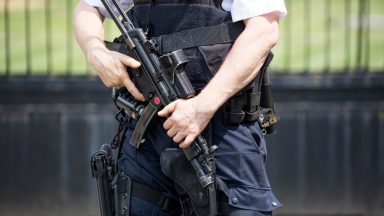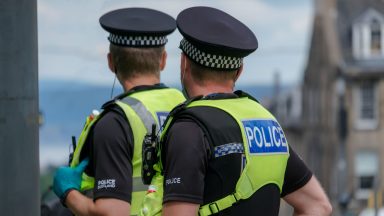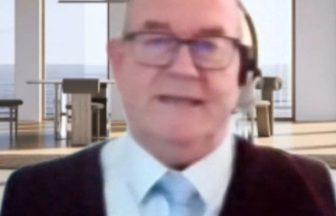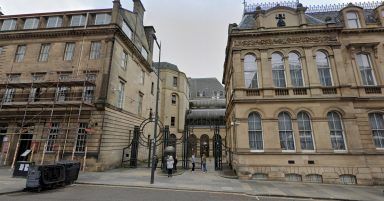The partner of Sheku Bayoh was told that “a black male had been found dead”, according to police evidence read out at an inquiry investigating his death.
The statement came from detective sergeant Dursley, who was one of the officers involved in the police incident in which Mr Bayoh, 31, died after being restrained on the ground by six officers in Kirkcaldy, Fife, in May 2015.
Mr Bayoh’s sister, Kadi Johnson, had previously told the inquiry she believes her brother was handled the way he was because he was black.
She also said that she and her family began to feel “suspicious” after being given different versions of how her brother died.
The inquiry, being held at Capital House in Edinburgh, is investigating the circumstances of his death and whether race was a factor.
A statement written by DS Dursley, in which he described how the death message was relayed to Mr Bayoh’s partner, Collette Bell, was read out to the inquiry.
It said: “Between me and DI Colin Robson, we delegated Wayne Parker to tell Collette Bell words to the effect that ‘a black male had been found dead’ and we suspected that it may be her partner.”
Giving evidence at the inquiry, detective constable Andrew Mitchell, who was involved in delivering the news of Mr Bayoh’s death to Ms Bell, was asked if the description sounded accurate.
He said: “I can’t remember the exact wording, in all honesty.”
But when asked by Angela Grahame KC, lead counsel to the inquiry, if DS Dursley’s description sounded similar to what was said to Ms Bell, he replied: “Yes.”
DC Mitchell later said he did not remember the use of the words “found dead”.
A section of Ms Bell’s statement to police at the time was read out to the inquiry in which she said: “The officers said there’s no easy way of saying this I’m just going to say it.
“There’s been a body found that matches your partner’s description and we think it’s Shek.”
It continued: “I said, well, what’s happened to him? Has he collapsed? Has he got any wounds? Has he been hurt? Has he been stabbed? What’s happened? Where was he found? They just said that a passer-by had found him dead on the street.”
Ms Grahame asked DC Mitchell if at the time of meeting with Ms Bell he remembers her asking questions.
The witness told the inquiry that he may have missed her questions as he was busy comforting her baby while officers were trying to obtain a statement from her.
However, in relation to Ms Bell’s comments about officers telling her “a passer-by had found Sheku dead”, he said: “That certainly was never relayed to her at any point.”
The inquiry heard more of Ms Bell’s statement read out in which she said officers asked her to give a statement because they were looking for someone in relation to Mr Bayoh’s death.
Ms Grahame asked DC Mitchell if this was true, to which he replied “no”, adding “we will have said that it was still an ongoing investigation and we’re obviously trying to make contact with witnesses to try and ascertain exactly what’s happened”.
The inquiry heard DC Mitchell knew at the time when he was talking to Ms Bell that Mr Bayoh had been in contact with police, and that he had been alive.
Ms Grahame asked asked the witness: “You have talked about sharing information with the family as soon as possible.
“Can you explain why you didn’t tell Collette Bell that he had died having come into contact with the police?”
DC Mitchell replied: “It was a direction from our supervisors that we weren’t to mention anything to do with the police contact until it was properly investigated.”
When asked about what the reason was for retaining that information, DC Mitchell added: “It was still being investigated at that point.
“Obviously, we didn’t really know the full ins and outs so it was obviously for when we did understand to then give a clear picture later on.”
Ms Grahame asked: “What’s wrong with telling families that is the actual truth of the matter?”
DC Mitchell replied: “Yes, to be honest, I don’t know.
“I really don’t know.
“That was just the decision that was made that day.”
Ms Grahame asked what is the downside of “hiding something from families about the fact there was police contact” to which the witness replied: “You then lose their trust.”
He went on to tell the inquiry the impact of losing trust with families is “massive because the rapport then goes out the window.”
The inquiry, before Lord Bracadale, continues on Wednesday.
Follow STV News on WhatsApp
Scan the QR code on your mobile device for all the latest news from around the country


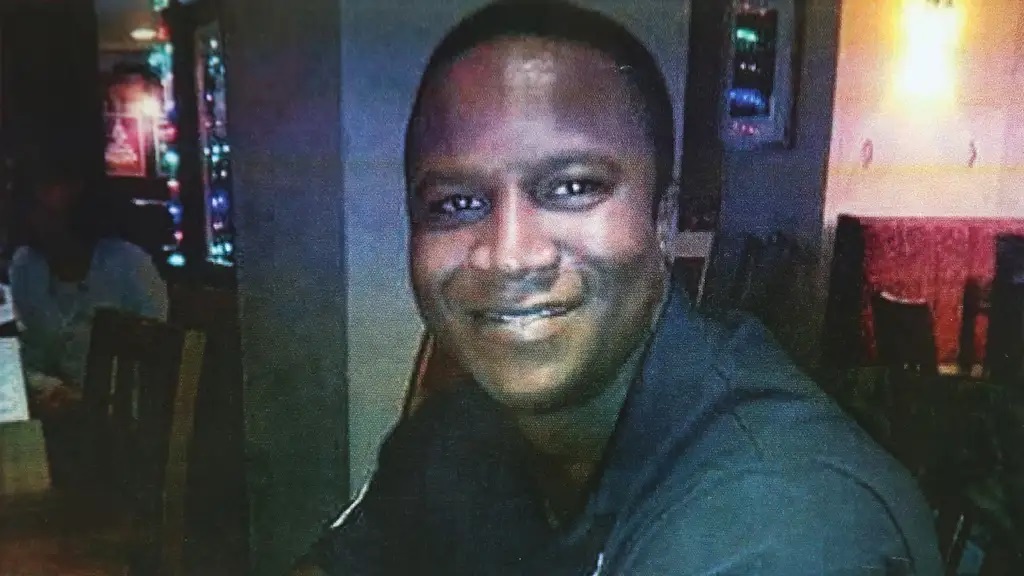 Handout
Handout















